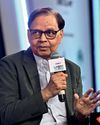
LAUNCHED AMID MUCH fanfare in 2003, the New Pension Scheme was expected to herald a new dawn in India’s financial architecture. The Pension Fund Regulatory and Development Authority was set up to oversee the scheme, and by 2009 the government opened it up to all citizens—it was made mandatory for government employees recruited after January 1, 2004.
The scheme, renamed the National Pension System (NPS), represented a major departure from the past, at least in the public sector, since it involved defined contributions from employees that are matched by the employer. Before NPS, the government offered defined benefits schemes that guaranteed a certain pension.
But as the NPS nears its twentieth anniversary, its private sector subscriber numbers have failed to match those expectations, despite its low-cost model. Now, even in the public sector, there have been increasing calls to shift back to the old pension scheme (OPS) and its defined benefits, a demand that has found its way into election of manifestos in state after state.
The biggest reason for the low popularity of NPS is the presence of more lucrative market-linked options. On this front, its main challenger, perhaps, is the mutual fund (MF). Consider this: The total number of MF accounts stood at 151.4 million as on July 31, while NPS subscriptions stood at just 16.8 million as of August 5. Besides, the Indian MF industry’s assets under management (AUM) stood at ₹46.28 lakh crore, compared with the NPS AUM of ₹9.65 lakh crore. And this is despite studies indicating that the equity returns offered by the NPS is almost equal to those provided by equity MFs.
This story is from the {{IssueName}} edition of {{MagazineName}}.
Start your 7-day Magzter GOLD free trial to access thousands of curated premium stories, and 9,000+ magazines and newspapers.
Already a subscriber ? Sign In
This story is from the {{IssueName}} edition of {{MagazineName}}.
Start your 7-day Magzter GOLD free trial to access thousands of curated premium stories, and 9,000+ magazines and newspapers.
Already a subscriber? Sign In

"Do what's best for employees"
BEST ADVICE - PANKAJ JATHAR | CEO | NIIT LTD

Your Palate for 2025
What's in store for you in the New Year when you go out for a meal or a drink? We ask industry experts to predict F&B trends for 2025

"RBI'S STANCE SHOULD BE TO KEEP THE RUPEE MORE VOLATILE"
Axis Bank Chief Economist Neelkanth Mishra talks about the rupee, quantitative easing, the Trump impact, and more

"We should strive towards two non-zero GST rates"
Arvind Panagariya, Chairman of the 16th Finance Commission, on further reforms in the economy, the Nehruvian era and its impact on policymaking, cash transfers, and more

A GENERATION MAROONED
This generation is creating new grammar for social and professional existence. They are reimagining the very concept of work, identity, and social belonging

A TIME OF UNCERTAINTY AND OPPORTUNITY
A look at the key trends that will redefine how content will be created, distributed, and consumed

Consciousness Shaping Consumption
India has a dynamic and discerning consumer base, whose consumption pattern is experiencing a significant transformation

THE NIFTY ELEPHANTS
The composition of the Nifty 50 index has undergone notable changes in the past 30 years, with only 11 companies consistently remaining in the index. It is expected to undergo further changes in 2025 with the entry of new-age companies like Zomato

REDEFINING THE DIGITAL AGE
For Bitcoin, its future lies not as a currency but as a cornerstone of the modern financial ecosystem

THE FUTURE OF HEALTHCARE
As AI advances, so will its role in health insurance. In the future, it shall perform a variety of complex tasks, making it more accessible and aligned with individual needs